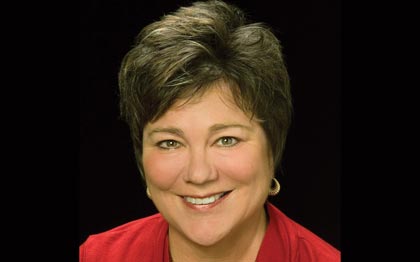eems an impossible task to seek out and train leaders to bring a dynamic Christian witness to a generation often disillusioned or polarized by ethical, economic, political and even religious differences.
To be sure, there are challenges, but the story of hearing and answering the call has always been a story of determination in overcoming obstacles. As Paul reminded the early church: "The goal I pursue is the prize of God's upward call in Christ Jesus." (Philippians 4:13, CEB)
But in an age of complex movement-centered ministry in which denominational loyalty is at a low and a passion to make a difference is high, diverse models of leadership training are needed.
Identifying emerging Christian leaders and equipping them for service continues to be at the heart of the mission of the General Board of Higher Education and Ministry.
 |
| The Rev. Kim Cape, General Secretary, General Board of Higher Education and Ministry. |
"As the agency of the church that is totally focused on leadership development, Higher Education and Ministry is working to ensure that every United Methodist has the opportunity and support they need to lead and make a difference in the world," says the Rev. Kim Cape, general secretary. That includes a renewed focus on the call to ministry, including the development of "Called".
A new resource for local churches, "Called" includes worship helps, liturgy and curriculum for kindergartners to twelfth graders that emphasizes the call to serve belongs to every Christian.
The ways of defining and discerning the call are changing. At one time, a call to ordained ministry was thought of only as a call to preach or teach and provide pastoral care. Today, the list of occupations one might fill as an expression of one's vocation – response to God's call – is growing.
The agency's plan for developing Christian leaders blends technology, mentoring and other relationships.
Recognizing the imminent shortage of ordained clergy within the denomination, the 2012 General Conference established the Young Clergy Initiative (YCI).
The grants go to "innovative programs that support young clergy or work to increase the number of young clergy in the church," Cape says. "A total of 78 YCI grants totaling $5.5 million have been awarded across every jurisdiction."
As part of a larger strategy, GBHEM sponsors "Exploration," a biennial event aimed at reaching potential clergy.
Creating community is a vital component. MyCallStory.org is a new website where persons can share their call experience via video stories.
The agency's support of emerging Christian leaders goes beyond those considering ordained ministry.
UMC Cyber Campus holds the potential of being a potent tool for leadership development. This project provides lay and ordained church leaders with access to online lectures, videos, and live webinars.
Another program helps identify, support and equip young ethnic thought-influencers and future church leaders. This program has distributed grants totaling more than $52,000 to six organizations for projects that depend heavily upon community-organizing techniques, which require intentional relationship building.
"Even in this rapidly changing world of ours, we know that the Holy Spirit continues to call people to leadership," Cape says. "The responsibility of the church is to equip and support people to use their gifts to make a difference in the world. We are continually looking for ways to support smart, innovative programs around the world that help people identify and follow their call."
Vince Isner, writer, media producer and founder of PowerTools™ for Fathers, who lives in Franklin, Tennessee.
One of seven apportioned giving opportunities of The United Methodist Church, the World Service Fund is the financial lifeline to a long list of Christian mission and ministry throughout the denomination. Please encourage your leaders and congregations to support the World Service Fund apportionment at 100 percent.





